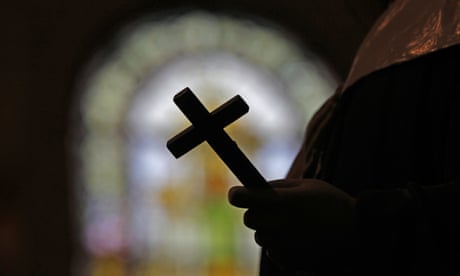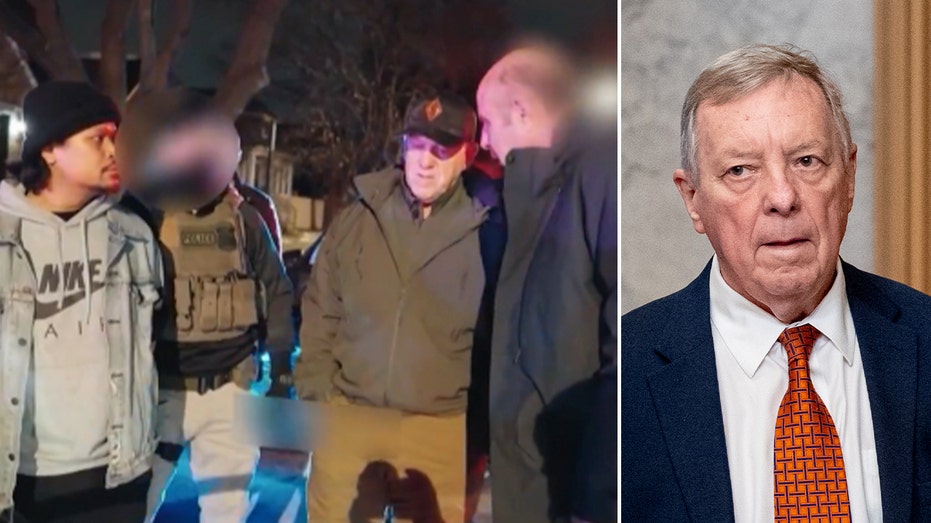- by foxnews
- 02 Feb 2025
‘Annihilating for survivors’: the Catholic church and its plaques to abuse perpetrators
‘Annihilating for survivors’: the Catholic church and its plaques to abuse perpetrators
- by theguardian
- 19 Feb 2023
- in news

For the past 10 years, on the grounds of one of Canberra's most prominent Catholic schools, a small plaque has paid tribute to the service of a man named Brother Jerome Hickman. Under the school sigil of Marist College Canberra, the plaque commemorates the work of the late Hickman, honouring him along what is known as "the Brothers Way", a walk of appreciation for past clergy and staff.
The plaque, quietly removed in recent weeks, gave no hint of his darker past.
Hickman was the subject of multiple complaints of child sexual abuse and violence spanning his career in the Marist order.
The church has long held knowledge of complaints about him and has offered payouts and apologies to survivors in out-of-court settlements, according to Kelso Lawyers, a firm specialising in clergy abuse cases that has represented Hickman's multiple victims.
In one of the cases run by Kelso Lawyers, a student at a Marist school in the Sydney suburb of Dundas, known by the pseudonym of Matthew, alleged he was violently raped and abused by Hickman from the age of just 10. The church has apologised and paid Matthew a significant settlement.
Despite this, the plaque remained on school grounds from 2012, when it was installed, until at least December, according to photos seen by the Guardian. The school says it has now been removed but could not say when, or whether it had only acted this week, after a survivor's complaint and the Guardian's questions.
For survivor Damian De Marco, a former Marist student, local Australian of the Year award winner and advocate for child abuse survivors, the plaque is evidence of a "deeply entrenched cultural problem" still rife across the church.
De Marco complained to the ACT government about the continued presence of the plaque this week, describing the commemoration of Hickman as "outrageous" and urging it to intervene.
"It is outrageous that yet again, for the third time in six years, Marist College needs to be asked to remove items celebrating paedophiles or those who have protected them," he wrote.
It's far from an isolated case for the church. In Ballarat, the centre of clergy abuse in Australia, plaques commemorating Bishop Ronald Mulkearns still adorn local buildings.
A survivor of paedophile Catholic priest Paul David Ryan, whom Mulkearns protected, says he started campaigning for the removal of the plaques in 2016.
The survivor, who wished to be referred to as BPD, as he was during the child abuse royal commission, would constantly see Mulkearns's name on local churches, schools and halls. Mulkearns had ignored BPD's complaints about Ryan, allowing him to go on to offend against other children.
It was a pattern Mulkearns repeated with other serial offenders, including Gerald Ridsdale, considered one of the worst clerical child sexual abusers in Australian history.
BPD says he's had about 15 plaques with Mulkearns's name on them removed since 2016.
"I'll just drive around and stop at a church or a school and a hall and if I see the name I'll call up the parish and ask, 'Is this kosher?'" he said.
"I really don't mind if I come across as a cockhead. What it comes down to is why do you honour a guy who cuts a ribbon to open a building when he has allowed people to go and hurt others?"
Sometimes action is swift but he has also met resistance.
He says when he approached one priest about removing a plaque adorned with Mulkearns's name and provided him with a victim impact statement that outlined how Ryan's offending had changed his life, the priest declined to remove the plaque but asked if he could use part of the statement for a sermon.
Time and again, it has been left to survivors to pressure the church to remove such plaques. In Hobart's St Mary's Cathedral, an artwork honouring the late Catholic priest Philip Green remained on display until 2017, 13 years after he pleaded guilty to indecently assaulting a former altar boy.
Also in Ballarat, survivors complained about the continued honouring of the bishop of Ballarat, James O'Collins, on the town's buildings. The royal commission heard O'Collins also received complaints about Ridsdale in the 1960s but did nothing to report him to police.
In Western Australia, the Catholic church promised to remove a plaque memorialising the late Floreat priest Peter McCudden when it compensated a woman in 2002 after she complained McCudden abused her when she was 13. It was later revealed the church had simply removed the plaque from a church wall and mounted it metres away in a parish office. The plaque has now been completely removed.
The Blue Knot Foundation executive director, Cathy Kezelman, says the concept of commemorating such clergy is "annihilating for survivors".
"If churches are really victim-centred and trauma-informed, they will act to remove any public recognition of perpetrators," Kezelman said. "Without this, survivors will continue to feel that their own needs have not been honoured, nor the impact of the crimes against them truly acknowledged."
The Safeguarding People Australia founder, Hetty Johnston, says plaques and memorials are trauma inducing for victim-survivors and "flies in the face of common sense, common decency and any kind of empathy".
But it's not just advocates who have concerns. The main body advising the church on the protection of children, Australian Catholic Safeguarding Ltd (ACSL), says its view is that there should be no commemoration of clergy who have been found to have abused children.
The ACSL chief executive, Ursula Stephens, said many Catholic organisations have already taken steps to remove images and tributes and rename buildings, but commemorative plaques or other permanent records that record historical events were less likely to be removed.
"The national Catholic safeguarding standards ask church entities to provide trauma-informed and victim-centred care to anyone bringing forward a complaint of abuse," Stephens said in a statement. "It is ACSL's view that this should preclude honouring anyone who has been found to have abused children or adults with a permanent memorial."
Peter Poole, a pseudonym, complained more recently of abuse at Marist by Hickman, a claim that was finalised in October.
He struggles to explain his feelings about the plaque, which he says makes it impossible for him to go anywhere near the school.
"I can't explain how I felt about it," he said. "It was shock, I guess, that they just had such ignorance about glorifying someone who was a perpetrator."
Marist and the Australian Catholic Bishops Conference were approached for comment.
- by foxnews
- descember 09, 2016
Disney reveals fate of closed Star Wars hotel
The building that was formerly home to the Star Wars: Galactic Starcruiser at Walt Disney World in Orlando, Florida will be repurposed, the company confirmed to local media earlier this week.
read more


